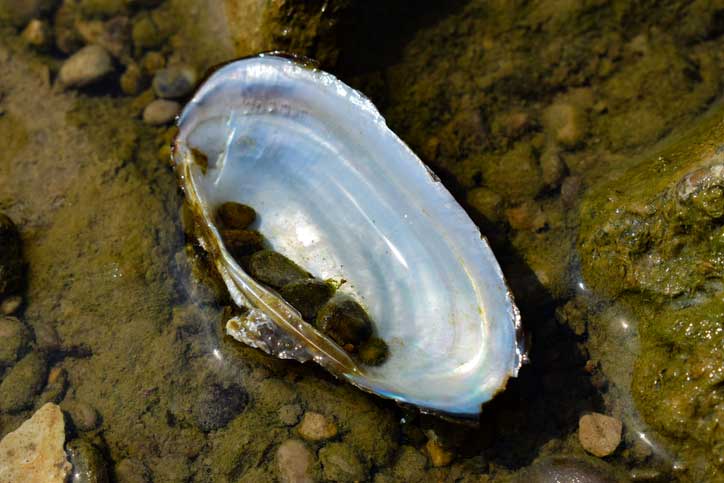Mussels are dying off, killed by a mysterious disease in places around the U.S., including Tennessee and Virginia
There are approximately 300 freshwater mussel species in North America, 71% of which are considered endangered, threatened or of concern. In the southeast alone, it is estimated that close to 24 species of mussels have gone extinct.
In Tennessee, researchers are studying the mass die-off of the pheasantshell mussel in the Clinch River, which has spread up the river into Virginia. Usually, mass die-offs of animals in rivers are caused by human action, such as oil spills, but scientists suspect this event is caused by disease.
It’s not the first time a mass die-off of mussels has been observed in Tennessee. In the 1980’s and 1990’s a similar phenomenon took place on the Holston and Powell Rivers. Back then, researchers were also unable to determine the cause.
The die offs stand out because they are affecting only mussels. “It seemed very strange that there was one species out of a biodiverse assemblage that was being affected,” Tony Goldberg, a veterinary epidemiologist at the University of Wisconsin told The Guardian. “From an epidemiologist perspective that is a red flag for infectious disease.”
The death of a large number of mussels can change the ecosystem in rivers. And the worry is not just for the mussels. If it is a disease killing the invertebrates, there’s a chance it could adapt and spread to other freshwater species over time.
“When you talk about these massive global extinctions, these are the species that are really blinking out,” Jordan Richard, a wildlife biologist studying the Clinch River mussel die-off told The Guardian. “And there’s so many of them nobody even notices.”








